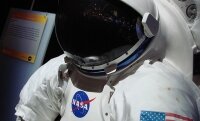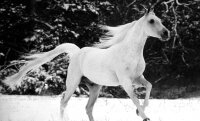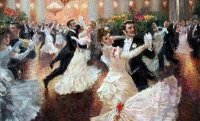Dramatist, Musician, Soundscape Creator
Interviewed by Carol Reid, February 10, 2010
1. Hey, thanks for agreeing to be interrogated—can you give us some history on the origin of DNA and the “theatre of the invisible”?
Lawrence Russell
I grew up in the “radio era” listening to the BBC and various European stations which didn’t come in all that clearly but were a fascinating babble of foreign tongues and white noise. That had an influence on my electronic music…and of course listening to drama–especially in bed, before falling asleep–also had an influence. My first stage plays in the 1960s were “theatre of the absurd” bizzaro narratives, and one I wrote had a series of taped voices to which the live actor responded. Then I sort of backed into “theatre of the invisible” by writing a play based on a movie with no picture. The idea is both mechanical and metaphysical. So the audience would be in the dark, just listening to a montage of monologues and dialogues, just like a bad dream, tasteless and funny as dreams often are. It was called Black Movie, and caused a controversy when it was first “staged” here in Victoria…especially when certain members of the audience couldn’t exit in the dark. The Factory Theatre in Toronto loved it, ran it at one of their festivals in 1971.
DNA followed this…the notion of developing an oral literature, and breaking away from the institutional channels of publishing…lit mags, big city book merchants. Tape recording was accessible, and tapes easily copied. So it was a tape exchange for the hippie era…anticipated the anarchy of the Internet and the “free” MP3 swapping. So that’s how I do it these days via my website Culture Court. Broadband digital is a great and wondrous thing!
2. The musical component of the audio pieces is pretty accurately described as hypnogogic–makes me feel like a snake in a basket. How did you develop this musical style and what was it based on?
To me, sound, especially music, can be a means of hypnosis. Great literature, a great story can draw you in, interiorize you in another world. Music, the most abstract of the arts, can generate amazing imagery within the mind. Language is concrete, of course, yet the notion of combining language and ambient sound was a compelling notion to me. Not opera, not radio drama, nothing so formalized, nothing so scripted…construct narratives with sonic imagery, be it noise, music, or language. So I looked to Indian raga music, psychedelic rock, and 60′s West Coast electronic music such as Terry Riley’s seminal “In C” to create my soundscapes. I create a background just as a painter uses a dominant back-color for a painting. At first I used a detuned guitar plugged directly into a tape recorder, multi-tracked. Or I used field recordings of documentary sound…rivers, traffic, railway stations, whatever… sometimes I’d reprocess the sound to get something more interesting…or use loops. All the tricks. “The absence of limitations is the enemy of art,” said Orson Welles. How true! When you don’t have great gear, you have to improvise. These days I use a synth a lot…the latest models are unbelievable, so easy I feel like I’m cheating.
3. Central America and Ireland provide the backdrop for a number of the audio pieces. What draws your imagination to those settings?
I grew up in Co. Antrim, left there when I was 17. As art is essentially infantile, fiction writers invariably malinger in reminiscence. I wrote that way in my collection Repeat This & You’re Dead. You know, a lot of us can never escape our childhoods, when everything is existential. Events happen, all is new. The Latino thing for me is a way of escaping the straight-jacket of one culture for the freedom of another. I mean, my Mexico, my South America, is completely imaginary. Exoticism–reviled by many critics who favor social realism–attracts me like a nice bottle of wine. The home culture is always a narrative trap for me. The creative writing maxim “write about what you know” is based on the aesthetic that good writing is documentary, is social realist. Face it, fiction has become journalism…and I’m glad to say, journalism has become fiction.
4. Great quote from your website-
“Fragments are always more interesting than complete stories because you can make your own connections, establish the consequences. Audio is like darkness, where reality is always perceived in fragments.”
I suspect, too, that sensory images are more powerful in the dark. The audio pieces are dripping with sensory details. Is this another way to satisfy the listener, by substituting sensation for solution?
Yes, you can feel it without seeing it. Ellipsis. The unspoken subtext. You see the river, you see the bend, but you don’t see what’s around the bend. To me, the art of writing is the creation of a mystery, not the solution of a mystery. To me, the art is in creating enough of a context that the ghost will reveal itself to the reader or the listener within his/her own imagination. Anticipation is more powerful than revelation. There are no endings, only interruptions. We sleep, we wake, we sleep. We move between worlds, experience clarity and amnesia. Darkness forces us to consider existence without our eyes. When you’re young and learning to overcome your fear of darkness, you have to use your imagination to anticipate the future. Darkness and imagination are inextricable. Borges says he likes the night because, like memory, it suppresses idle details. While I like film–and write on it–I don’t like it as much as audio or literature as it leaves next to nothing to the imagination.
5. A line I love from Guitar Canyon–”Good karma gone bad”–many of your narrators seem to suffer this fate. Is karma a real force in your universe or a handy dramatic device?
Both.
6.a) What do you predict will be the future of story-telling? Has the internet put power in the hands of the artist or made everybody a self-proclaimed artiste? Or has nothing changed except the method of delivery?
Said it for years: art follows the dominant medium of the times. Today it’s digital and it’s multi-media. All else is museum art: live theatre, painting, books. Their narratives go dead, constricted by an institutional formalism that has less and less relevance in the techno world. I admit I have libraries of these art forms, but as an artist I must revolt, find a new narrative vehicle. Look at the evolution of popular music in my lifetime–stunning. The raw informality of it has led to tremendous creativity. Of course the movement will become decadent, lose its vitality just as a TV serial drama always does. Acceptance of the e-book reader is a great development, as it will force a reconsideration of the standard narrative. Art is now a multi-media exercise, a blurring of genres. But story-telling is biological, will continue; fiction is the only means whereby we can see the future.
6. b) You’ve left academia far behind you now, but for decades you taught Creative Writing at University of Victoria. Are universities and MFA programs life or death to the creative process?
Now that there are more writers than readers, I would have to say yes. The number of writing programs in the United States that are populated primarily by poets is staggering. A different kind of illiteracy has arisen: they can write “free verse” but they can’t write an essay. They can write about themselves in mumbo-code but don’t know how to use the library. It’s all just one long vomit of abstract expressionism — the art schools are the same, can’t draw perspective, bugger the rules, express yo’self. Ah, what do I know? It depends on the instructor, the student, doesn’t it? Genius emerges, regardless of formality. Universities create social workers, not artists.
7. What are you reading, watching, listening to these days?
I read non-fiction as it gives me ideas. Enjoyed David Gann’s The Lost City of Z, about Colonel Fawcett’s disappearance in the Amazon searching for El Dorado. While I read internationally (“exoticism” again) I haven’t found a fiction writer who has interested me in some time except as a subject of a biography. My age, of course…hell I’m so desperate I read Henning Mankell recently, the Swedish crime writer. He’s good, but it’s just crime fiction after all. Crime fiction is a disease which all cultures have adopted. The same sick cops, the same sick crimes. Nothing transcendental about it, just voyeurism… which is both the strength and the weakness of the contemporary film as well. I like the older films, with desperate men and beautiful women, with stories rather than sound effects, humanity rather than death without consequence. Film narrative is interesting because it’s always montage, isn’t as locked-down as live theatre or classic fiction, moves easily between the inner and outer worlds…although I have to say photography destroys mysticism.
8. May we post a link to one of your audio files? Which one? And why?
Of course. How about Carnival (Carnival)? It has a classic LR hypno soundscape and a fragmentary narrative, ends in an ellipsis….
-
Carol Reid is a Contributing Editor for Emprise Review








Pingback: New Interview: Lawrence Russell | Emprise Review